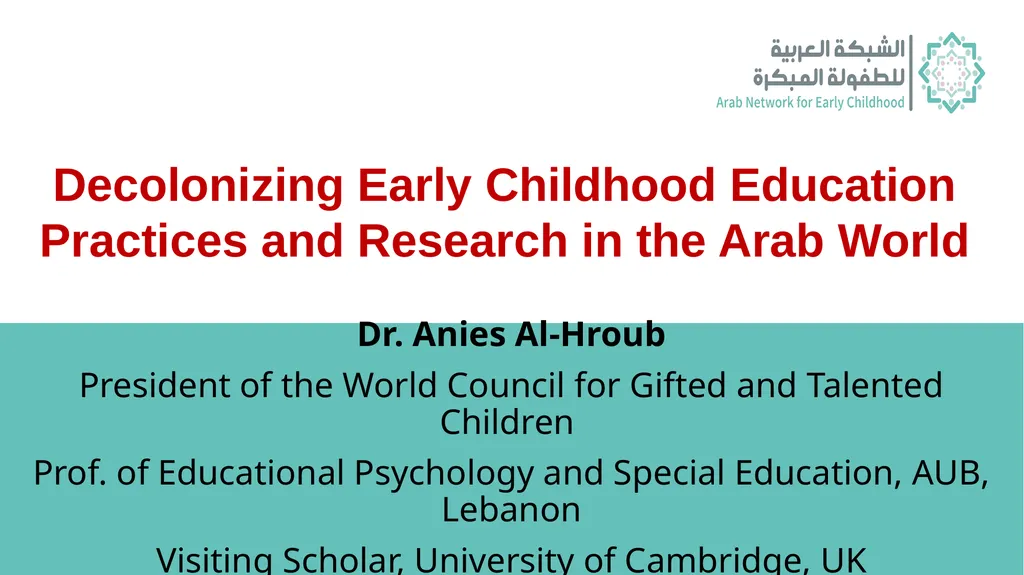
Author : tatiana-dople | Published Date : 2025-11-08
Description: Decolonizing Early Childhood Education Practices and Research in the Arab World Dr. Anies Al-Hroub President of the World Council for Gifted and Talented Children Prof. of Educational Psychology and Special Education, AUB, Lebanon VisitingDownload Presentation The PPT/PDF document "" is the property of its rightful owner. Permission is granted to download and print the materials on this website for personal, non-commercial use only, and to display it on your personal computer provided you do not modify the materials and that you retain all copyright notices contained in the materials. By downloading content from our website, you accept the terms of this agreement.
Here is the link to download the presentation.
"Decolonizing Early Childhood Education Practices"The content belongs to its owner. You may download and print it for personal use, without modification, and keep all copyright notices. By downloading, you agree to these terms.











![[READ]-Decolonizing Data: Unsettling Conversations about Social Research Methods](https://thumbs.docslides.com/955959/read-decolonizing-data-unsettling-conversations-about-social-research-methods.jpg)
![[EBOOK]-Decolonizing Methodologies: Research and Indigenous Peoples](https://thumbs.docslides.com/958299/ebook-decolonizing-methodologies-research-and-indigenous-peoples.jpg)
